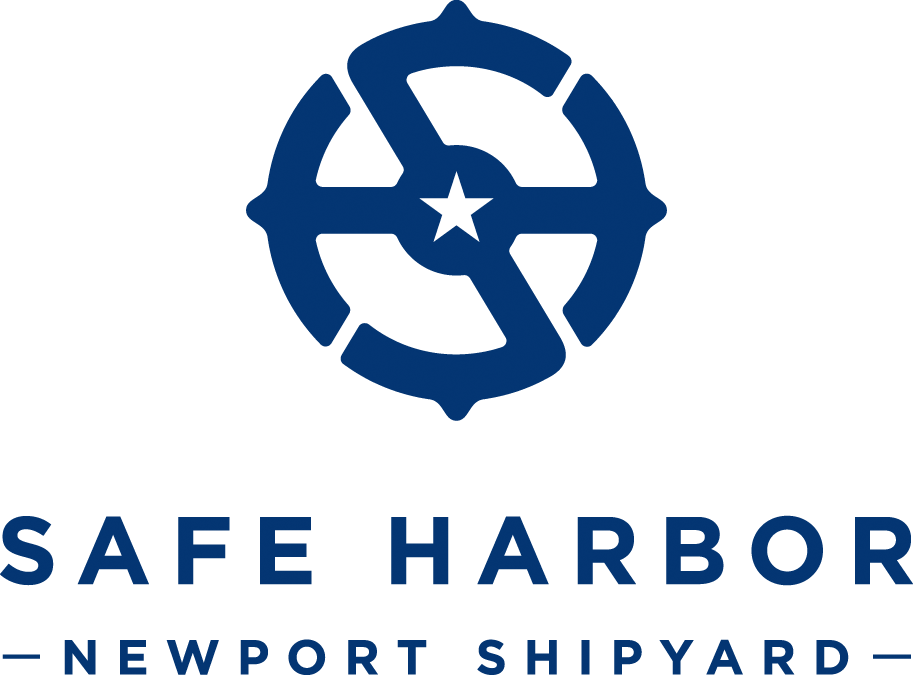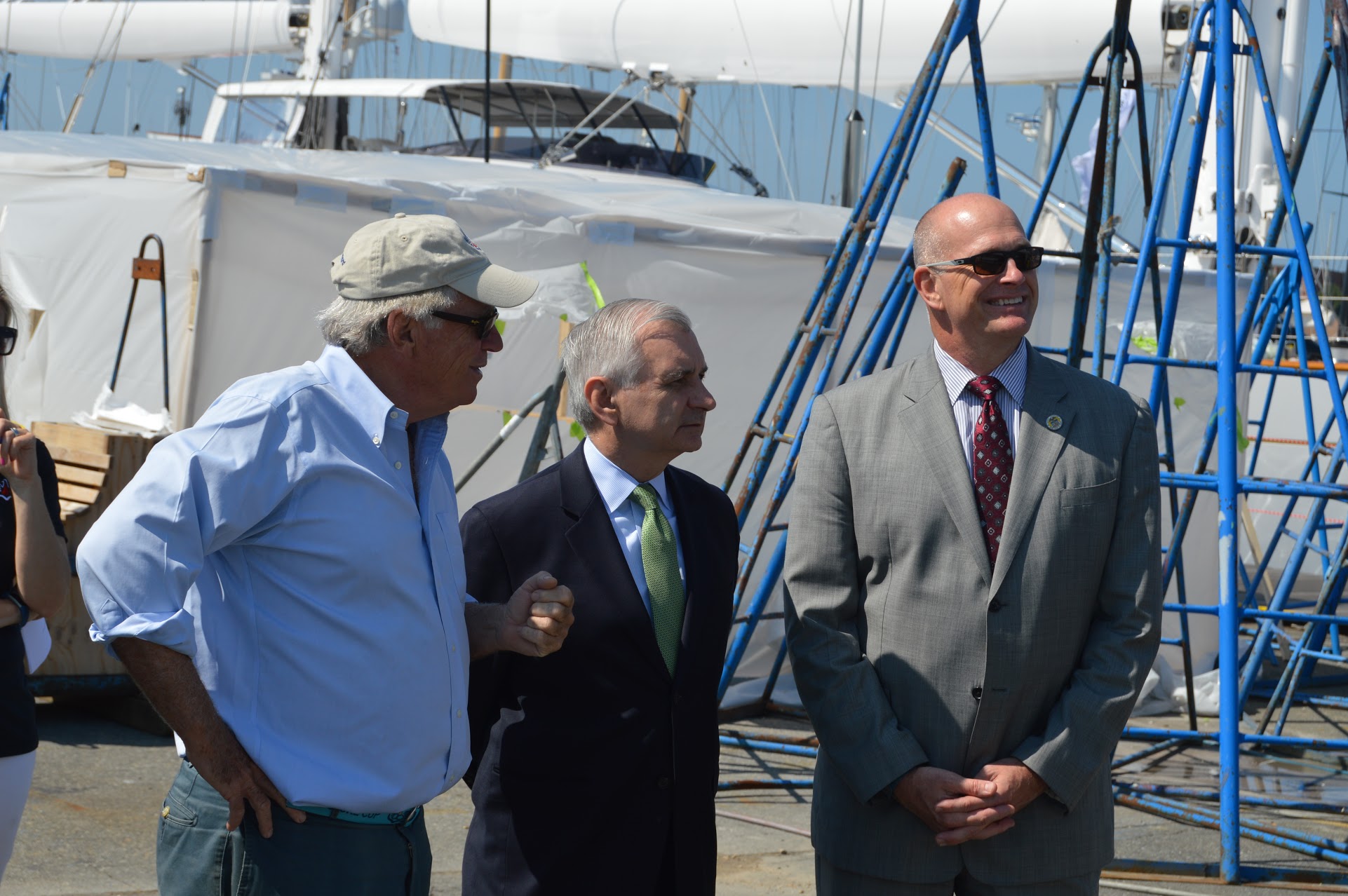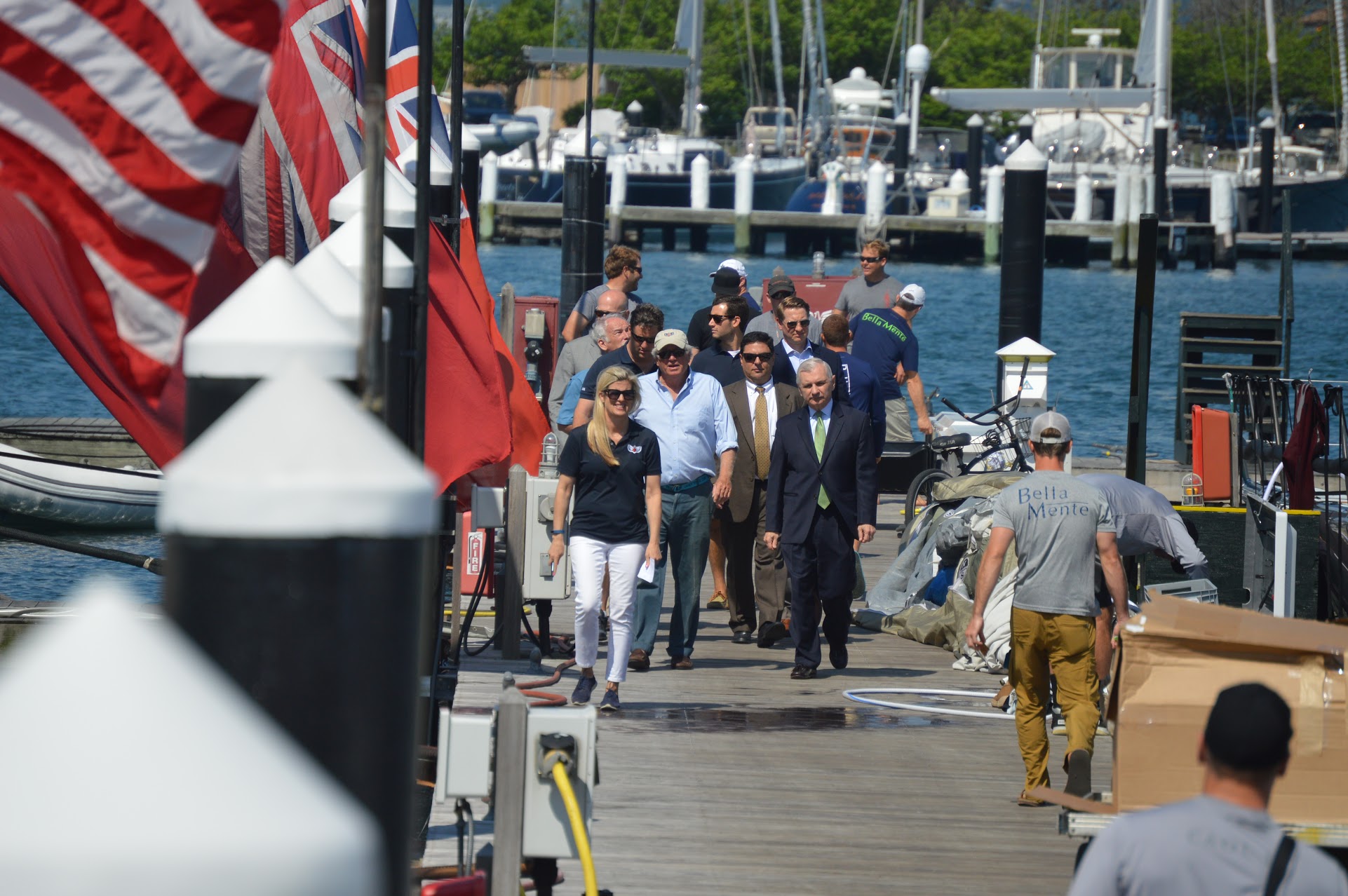Senator Reed and Head of Maritime Administration (MARAD) to RI tours Newport Shipyard
Reed seeks to keep RI’s port infrastructure shipshape & create opportunities to boost maritime commerce in the Ocean State
PROVIDENCE, RI – On Monday, June 6, U.S. Senator Jack Reed and Maritime Administration (MARAD) Administrator Paul “Chip” Jaenichen toured some of Rhode Island’s key port infrastructure and met with marine shipping leaders in Newport and Providence.
First, Senator Reed and Administrator Jaenichen traveled to Newport Shipyard which recently received a $744,990 Small Shipyards Grant to make capital improvements to the facility and procure a new 200 ton Marine Travelift. They received a tour of the shipyard from Charlie Dana and Eli Dana, the shipyard’s General Manager and Dock Master. As the Ranking Member of the Transportation, Housing, and Urban Development and Related Agencies (THUD) Appropriations Subcommittee, Senator Reed led the effort to restore federal funding for the Small Shipyard Grant Program in the FY 2016 Omnibus Appropriations law.
Senator Reed and Administrator Jaenichen then headed to ProvPort in Providence, where they met with Governor Gina Raimondo and port officials for a press conference to discuss the TIGER Grant Crane and Barge Project and christened a new, 300 foot, $7.4 million barge. Senator Reed has worked on THUD Appropriations to make federal funding available for the TIGER grant program. ProvPort’s $10.5 million TIGER grant supported the purchase of a marine barge and two high performance cranes, as well as specialized equipment to allow the cranes to move a variety of cargo. The “Sandy C” barge being christened will be used as a platform for the cranes. The new cranes will help transfer cargo to and from vessels twice as fast as the old cranes.
The Port of Providence is one of the busiest ports in the Northeastern United States, and one of only two deep-water ports in New England. According to port officials, ProvPort has generated an estimated $200 million total economic impact on the region, provided more than $60 million in direct business revenues, and $16 million in revenue to local and state government.




